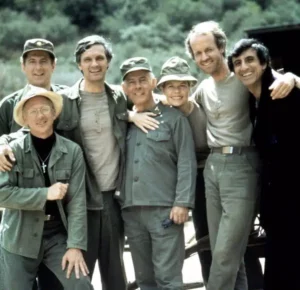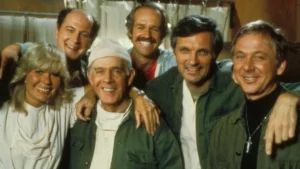In the realm of television, few shows have managed to blend humor and drama as seamlessly as MASH*. Set against the backdrop of the Korean War, this iconic series not only highlighted the lives of its main characters but also brought to life a memorable cast of supporting characters who enriched the storytelling. Each of these characters contributed uniquely to the narrative, showcasing the complexities of human relationships during times of conflict. In this article, we will explore eight outstanding supporting characters from MASH* who left a lasting impact on viewers.
One of the most beloved supporting characters is Colonel Sherman Potter, portrayed by Harry Morgan. Potter brought a sense of authority mixed with warmth and humor to the 4077th. His character navigated the challenges of military life while also being a compassionate leader. Potter’s wise and often humorous approach to the absurdities of war made him a pivotal figure in the series. His memorable one-liners and sage advice resonated with both the characters and the audience, reminding us of the importance of camaraderie and resilience.

Another standout character is Major Margaret Houlihan, played by Loretta Swit. Initially introduced as a strict and by-the-book officer, Margaret’s character evolved significantly throughout the series. Her fierce dedication to her role as head nurse often put her at odds with the more carefree personalities in the camp. However, as the series progressed, viewers witnessed her vulnerabilities and desires, making her a complex and relatable character. Margaret’s journey from a rigid authority figure to a more nuanced individual showcased the impact of war on women in the military.
The character of Hawkeye Pierce, portrayed by Alan Alda, is undoubtedly the heart of MASH*. However, it is the supporting characters that often provided the necessary counterbalance to his antics. One such character is Captain B.J. Hunnicutt, played by Mike Farrell. B.J. brought a fresh perspective to the 4077th when he arrived, often serving as a voice of reason amidst the chaos. His friendship with Hawkeye added depth to the series, highlighting themes of loyalty and camaraderie. B.J.’s ability to defuse tense situations with humor made him an essential part of the ensemble.

Another memorable character is Max Klinger, portrayed by Jamie Farr. Klinger, known for his outrageous attempts to get a Section 8 discharge, provided much of the show’s comic relief. His outlandish outfits and antics often contrasted sharply with the serious themes of the show, allowing viewers to find joy even in the darkest moments of war. Klinger’s determination to escape the realities of military life through humor and creativity made him a fan favorite, showcasing the power of laughter in difficult times.
Then there’s Father Mulcahy, played by William Christopher, whose character served as the moral compass of the 4077th. As the camp chaplain, Father Mulcahy provided not only spiritual guidance but also a listening ear for the soldiers. His kindness and compassion shone through in times of crisis, making him a comforting presence in the chaos of war. The depth of his character was often revealed in moments of quiet reflection, reminding viewers of the importance of faith and humanity amidst the horrors of conflict.
Another noteworthy character is Radar O’Reilly, portrayed by Gary Burghoff. Radar’s unique ability to anticipate the needs of others made him a beloved character within the camp. His innocence and unwavering loyalty endeared him to both his fellow soldiers and the audience. Radar’s knack for getting things done, often through unconventional methods, highlighted the resourcefulness required in wartime. His character reminded viewers of the importance of friendship and support, especially in challenging circumstances.

Finally, we cannot overlook the contributions of Lieutenant Colonel Henry Blake, portrayed by McLean Stevenson. As the original commanding officer of the 4077th, Henry brought a lighthearted yet authoritative presence to the camp. His laid-back attitude and comedic interactions with the staff provided a refreshing dynamic. However, his departure from the series was a poignant moment that underscored the harsh realities of war, reminding viewers of the stakes involved in their comedic adventures.
In conclusion, the supporting characters of MASH* played an integral role in the series’ success. They brought depth, humor, and emotional resonance to the narrative, allowing audiences to connect with the multifaceted experiences of those in the military. From Colonel Potter’s wisdom to Klinger’s humor, each character left an indelible mark on the hearts of viewers. Their stories serve as a testament to the resilience of the human spirit in the face of adversity, making MASH* a timeless classic in television history.